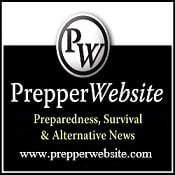Emergencies happen. Now What?
Each emergency requires specific planning. Well, a good place to start is recognizing the emergency situations that you could face. It is different for different people. In this article, I’ll address short-term emergency cash planning.
Residents on the Atlantic coast and on the Gulf of Mexico coast of the United States have experienced interruptions of their ability to access currency. Hurricanes and winter storms have caused widespread power outages. They are not alone in learning the importance of having emergency cash. Electronically-processed transactions are vulnerable. Preparing for emergencies can be simple and provide a sense of security.
We can realistically break these down into two categories; Life threatening (tornado, hurricane, flood, fire, etc.) and non-life threatening (auto repairs, medical expenses, bail bonds, etc.).
Historically tools available for unforeseen currency needs consisted of any cash in your pocket, your checkbook or a credit card. Today the currency paradigm has shifted away from cash and checkbook (when was the last time you wrote a check?) to debit and credit cards. This is now an electronic society. Quick and easy except when the systems go down.
Cash is King
The single most important thing to remember in case of any emergency is that CASH IS KING. Say it again,
The single most important thing to remember in case of any emergency is that CASH IS KING.
In our modern society, fewer and fewer people are carrying cash these days. They Most people are dependent on their debit cards and cell phone apps to handle their purchase needs. Seems to be working ok in general. BUT what to do when the system doesn’t work or the merchant does not accept plastic or, God forbid, the ATMs go down.
Note: I never use a phone app or debit card while traveling. Your exposure to fraud is inherently increased while your recourse options diminish.
The answer is good old CASH. Forget bartering. Forget silver or gold (which is impossible for the man on the street to verify authenticity). Cash remains the answer. While cash is king, we still need alternative backup support with credit cards (always have 2 working credit cards). Just a note of advice. Do not put anything on your credit card that you can’t pay of within 2 billing cycles.
OK, so cash is the answer. NO surprise. But where to keep and how much.
Traveling During an Emergency (Short-term)
When traveling for a couple weeks, usually $300 in cash is plenty to fall back on when credit cards are not acceptable. Divide the cash up between a couple of people if possible. This reduces the risk of loss. Keep the cash where you are comfortable. Some carry on their person, some hide it in the vehicle. Just be responsible with it. Do not use your emergency cash for vacation travel. You traveling cash need to be funded from another source.
Of significant importance is the availability in case of life-threatening disasters when access to cash may be limited due to power outages, bank closings, etc. It is now when your emergency cash can save you. Cash should be kept in a fire proof water tight container easily accessible in your home. This will allow you to access it quickly and easily if the need arises. This does not need to be an immense vault. Just a box the size of a fishing tackle is sufficient. This is truly EMERGENCY CASH.
You may need this cash to live on for several days or even weeks. This is for the basics of your survival. A minimum of $500 should be available for such emergencies and $1,000 would be better. No bills larger than $20 as some places may also be short on cash and unable to break large bills.
It’s not rocket science folks. Emergencies happen. Preparing for emergencies can be simple. You can begin accumulating your emergency cash in small increments. It doesn’t need to be funded all at once. The more cash you have in your emergency fund, the more prepared you become. It does take a measure of discipline. Just make sure it is a REAL emergency when you tap these funds and be responsible with them.
 |
By Mark Eaton With forty-three years of banking experience, including Chairman of the Hutchinson, Kansas Land Bank, Mark Eaton has seen the good times and the bad. As a banking executive, he has serviced commercial and personal business lines. That front-line experience has provided him with valuable insight in financial resiliency. Retired from banking, he now dispenses wisdom from his remote Arkansas retreat. |


